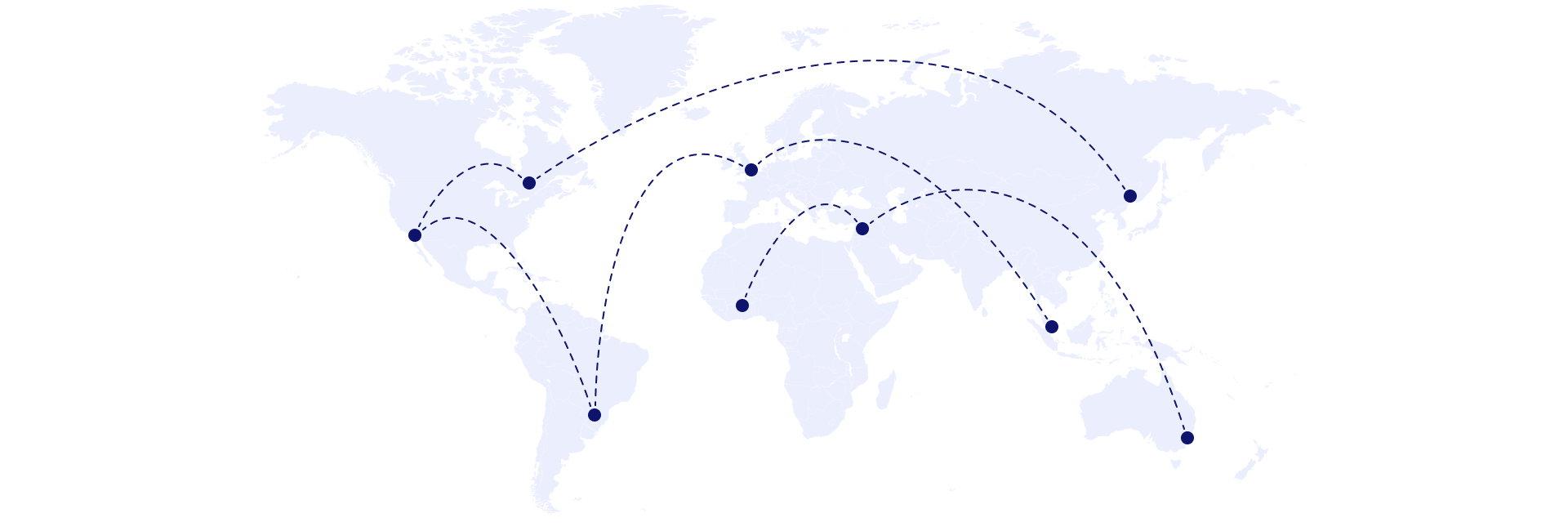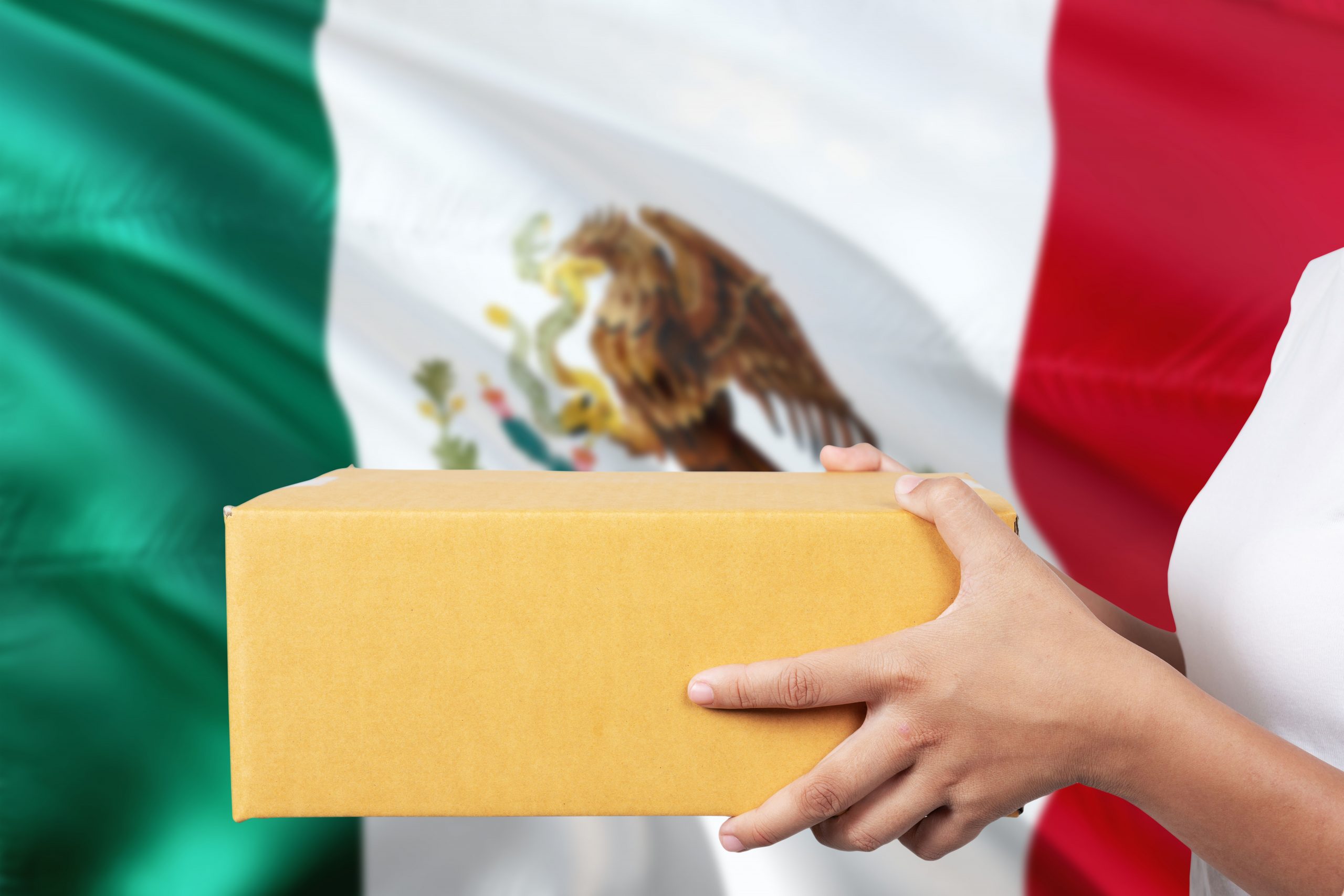
After a disruptive 2020, global trade exceeded record levels in 2021 — and confidence in business is gradually resuming. Small businesses across Australia are now eyeing lucrative opportunities in international markets.
However, business isn’t always plain sailing. If you’re considering expanding into new markets abroad, it’s wise to consider the various international business risk factors that may affect you.
In this article, we’ll outline some of the factors that could make an impact on your business’s total risk exposure, so you can get a feel for what to expect before you set up shop in a new territory. We’ll also explore how businesses can limit the international risk factors outlined below.
- The usual suspects: market and economic forces
- Cultural differences
- Extreme weather events and natural disasters
- Legal challenges
- Political risk factors
- Purchasing power parities
1. The usual suspects: market and economic forces
As an entrepreneur, you’ll be familiar with the typical business challenges of supply and demand on your own turf. You may even have achieved a resilient system and only ever run into problems infrequently.
However, entering into a new market is a whole different story. You might have spotted a complete or partial gap in the market, but you’ll be entering a new business environment where you’ll face new competition and different consumer preferences. Local suppliers will probably have a more established foothold in the region, so you’ll need to break through existing brand loyalty.
You’ll need to carefully manage this new business risk factor with thorough market research and advertising to build up brand awareness and trust — especially if your goods/services are price-sensitive.
If the local economy of your new overseas market is in (or heading towards) a recession, certain customer demographics may have less disposable income to make purchases. In addition, the wider economic health of the country might not last long enough for you to set up properly. While you can’t eliminate this international business risk factor entirely, you may be able to reduce it to some extent — and that will take time and planning.
2. Cultural differences
Much more obvious international business risk factors include language and cultural barriers.
Practically speaking, businesses must be able to communicate with their customers and/or suppliers — at a bare minimum. If you’re expanding into a market where there is a dialect or language barrier, therefore, it’s important to make sure your language skills are passable.
Fortunately, eCommerce businesses can use freelance translators on platforms like Upwork or Fiverr for product description and marketing material translations. In contrast, physical stores may need a more ‘boots on the ground’ approach and that can be costly, unfortunately.
If you do have a functional familiarity with the local language, understanding the finer points of your new cultural environment is even more crucial. While your communications might be grammatically correct, a taboo turn of phrase can quickly spoil a business relationship. The same principle applies to behavioural conduct, meaning you’ll need to keep up proper appearances to sell effectively.
Business cards and etiquette, for example, are important elements of doing business in China, while inviting contacts for meals during the daylight hours of Ramadan may be considered insensitive in Saudi Arabia. Even accepted business attire in New York and London is changing.
3. Extreme weather events and natural disasters
Globally connected supply chains mean you may need to relinquish total control over every logistical step. Although there are perfectly reputable and reliable manufacturing and shipping partners available, mother nature can be a hindering force at times. For this reason, extreme weather events and natural disasters present a sustained business risk as entrepreneurs expand internationally.
Australia itself is increasingly facing the effects of climate change and historically has suffered from droughts, floods and bushfires.
Around the world, other countries are in a similar situation. Damage to Japanese infrastructure after the 2011 tsunami was estimated at $235 billion (USD), while more recent floods in Queensland, Australia, are set to cost up to $2.5 billion (AUD) and push back the state's economic growth.
On a practical level, your business may have to account for increased business insurance premiums and operational challenges should your premises or goods be affected by extreme weather events.
4. Legal challenges
As if overcoming cultural and language barriers wasn’t enough, your business must also become familiar, and comply with entirely different legal systems.
Businesses are subject to fines or further legal consequences if they don’t comply with their relevant local authorities, for instance. Because of inevitable regional legal differences, we advise that you seek advice from a qualified solicitor and an accountant to make sure you’re not violating local legislation.
To illustrate this point more effectively, we’ve broken down the main legal challenges you may face into three distinct areas: tax, operations, and contracts.
Tax compliance
Almost every nation has some form of tax requirement (although some have a lower threshold than others). Regardless of the actual payments to the governing bodies in question, the local governments you deal with will require your business to file some form of tax return paperwork — even to report a loss, or no net profit. Each of these obligations will come with deadlines and workloads that will need managing on top of your business’s existing operations.
Differing tax rates can also impact your growth strategy in each new location: it can be very difficult to implement a unified strategy across your enterprise if you have fewer resources for one location versus another.
Fortunately, thanks to globalisation, certain legal elements are coalescing — like the corporate tax rate, for example — which can help your business budget with consistency. An accountant qualified in your chosen market can help you understand your tax obligations more clearly.
Operations compliance
Operational requirements are a far more diverse and less standardised element of international business than our tax example above. Different countries regulate their business macro-environment more intensely, and certain industries within each country are more heavily regulated than others. Depending on quite how ‘free’ your new country’s market is, you may have to acquire permits for certain business activities before you can operate legally.
Agriculture and fisheries businesses, for instance, have to cope with environmental legislation, while manufacturers often have to abide by rigorous safety product standards when they produce children's products. Certain business activities, like playing copyrighted music or handling food, may also need a license.
If you make or import goods as an eCommerce business, specific regulatory requirements will depend on the product category. Alcohol vendors, for example, may have to secure a licence or permit — and may have to promise not to sell to minors — while tech businesses may have to make sure their products meet electrical safety standards.
Contract compliance
Whether you’re hiring staff to fulfil orders, or liaising with local businesses for support or supplies, it's essential to create ironclad contracts.
Certain agreements between businesses and their employees or suppliers may be considered unreasonable and unenforceable, leaving you open to lawsuits or unfulfilled obligations. Specific legal principles, like time-centric clauses or what might constitute a ‘good faith’ agreement, can vary wildly between two nations’ legal systems. Adding a language barrier on top of this can make securing reliable contracts difficult.
Consult a locally qualified solicitor to make sure you’re not left exposed to this risk factor.
5. Political risk factors
As factors affecting business risk go, politics is arguably the most astounding. Given the power they wield, some politicians don’t need to do very much to heavily affect market performances. Stock markets can be spooked when political leaders give impassioned speeches about trade tariffs (never mind actually delivering them), while currency values can tank or swell along the lines of certain political outcomes.
Even if your business isn’t yet publicly traded, as an aspiring international business, it’s worth paying attention to the shifting political scenes of your target market(s). Unfortunately, this isn’t the only risk factor from politics that affects international businesses. There are far less salacious examples that come from emerging legislation that your business should pay attention to.
First and foremost are changes to existing laws (for example, in tax rates, employment wage minimums or mandatory licences). We touched on these points above, but we haven’t yet mentioned that politics make this a dynamic challenge for businesses. Being compliant with the law means staying compliant, even as new governments tweak or overhaul entire pieces of legislation. Simply put, changes to the law can upend existing compliance efforts and move business strategy back to square one.
International businesses, importers and exporters also have to stay abreast of trade deals. The introduction (or removal) of lucrative international trade arrangements affects small businesses heavily, and can almost entirely determine their viability outside their original domestic market. With already thin margins in some product categories, small businesses can benefit from free trade agreements or lax tariffs on goods between nations.
When these arrangements are changed, removed or even expanded to a third-party nation, the business landscape can alter very quickly. As you’re reviewing your expansion efforts, take note of developments in government performance and legislation to ensure your business is viable.
6. Purchasing power parities
It won’t surprise you that financial factors affect your business’s risk exposure, but understanding exactly how is important. As you’re expanding internationally, you may find that your budget stretches less than in Australia.
This is known as purchasing power parity, where international buyers (you, in this instance), need to pay more for the same amount of goods as someone who lives there domestically. If this is the case, your initial investment and growth strategy will need to account for this acute business expense. Luckily, this isn’t always the case. If your budget forecast shows that your money goes much further, it’s essential that you maximise this advantage as much as you can, as it can help you fund a more aggressive growth strategy than your domestic competition.
Vitally, parities in purchasing power aren’t consistent across the board; no one nation is able to access goods cheaper than another every single time. Try to take a blended approach, purchasing domestically (within Australia) and/or importing goods to your new operational location to maximise your access to price differences.
Purchasing powers don’t usually remain static over time. The fluctuating nature of economies and currency markets (caused by the combined effects of changes in market forces, perceived stability in policymakers and business leaders, political direction, and more), cause the purchasing power of nations to change. Famously, China has enjoyed some of the most enduring and impactful economic development in human history, and now the luxury goods market is poised to centre on China as consumers buy high-quality brands with their increased disposable income.
How to limit international business risk factors with WorldFirst
Currency transfer providers like WorldFirst offer businesses innovative solutions to limit international business risk factors while conducting cross-border transactions by limiting their FX exposure. And with a faster and more flexible approach to currency transfers, you can improve access to your consumers and suppliers.
By using WorldFirst, your small businesses can access fast and affordable transfers. With same-day payment options on major currencies, you can ensure your transfers reach their destinations in hours, not days.
Find out more about WorldFirst and learn how to limit your international trading risks.

You might also like
Insights from WorldFirst cover the latest FX news, top accounting tips, strategies to mitigate risk and key industry trends. Choose a category below to find out more.
Businesses trust WorldFirst
Since 2004, more than 250K businesses have utilised WorldFirst to send more than $160B around the world.



